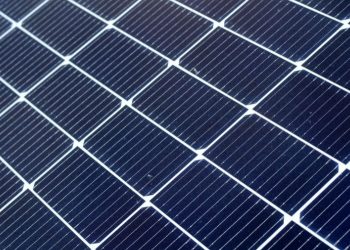The shift towards renewable energy has become increasingly popular, with solar power leading the way. Many homeowners and businesses are considering solar energy for its environmental benefits, but the financial implications are equally compelling. Our team at West Coast Solar is here to help you understand the costs involved and the potential savings that come with this alternative energy so you can make an informed decision about whether or not solar power is right for you.
Initial Investment: What to Expect
The initial cost of installing a solar power system can vary significantly based on several factors, including the size of the system, the type of solar panels used, and your location. On average, a residential solar power system can cost between $10,000 and $13,000 once you factor in the 30 percent solar federal tax credit.1 This cost typically includes the panels, inverter, mounting hardware, installation, and permits. While this might seem like a substantial investment, various financing options can help make solar power more accessible.
Financing Options: Making Solar Affordable
There are multiple ways to finance your solar installation, making it more affordable for many homeowners. Some of the most common financing options include:
- Solar Loans: Similar to home improvement loans, these allow you to borrow money to pay for your solar system upfront and repay it over time. This option enables you to own the system outright, benefiting from any incentives and long-term savings.
- Leasing: With a solar lease, you don’t own the system. Instead, you pay a fixed monthly fee to use the solar energy generated. This can be a cost-effective way to go solar without a large upfront investment.
- Property-Assessed Clean Energy Programs (PACE): This program for energy efficiency improvements and renewable energy systems helps eliminate the upfront cost of solar to homeowners and allows property owners to make additional payments with their property taxes, typically over a 10 to 20-year period or the lifespan of the home solar system.
Incentives and Rebates: Reducing Your Costs
Federal, state, and local governments offer various incentives and rebates to encourage solar adoption. The most notable is the Federal Solar Investment Tax Credit (ITC), which allows you to deduct a significant percentage of your solar installation costs from your federal taxes.
Long-Term Savings: How Solar Pays Off
One of the most compelling reasons to invest in solar power is the long-term savings on your electricity bills. Once your system is installed and paid off, you can generate electricity for 25 to 30 years or more. Additionally, solar energy can protect you from California’s rising energy costs, as you’ll be less reliant on grid electricity.
Increasing Property Value: A Smart Investment
Installing a solar power system can also increase the value of your property. Buyers are often willing to pay a premium for a property with lower energy costs, making solar a smart investment if you plan to sell your home in the future. Moreover, solar panels can make your home more attractive to environmentally conscious buyers.
Environmental Impact: Beyond the Financials
While the financial benefits of solar power are significant, it’s also essential to consider the positive environmental impact. By switching to solar energy, you reduce your carbon footprint and contribute to a cleaner, more sustainable future. Solar power is a renewable resource that helps reduce our reliance on fossil fuels, decreasing greenhouse gas emissions and air pollution.
Investing in solar power offers numerous financial benefits, from significant savings on energy bills to increasing your property value. With various financing options and incentives available, the initial cost can be more manageable than you might think. If you’re ready to make the switch, be sure to contact our expert team at West Coast Solar for a quote!
1Solar Panel Costs California: Are Solar Panels Worth It?
























